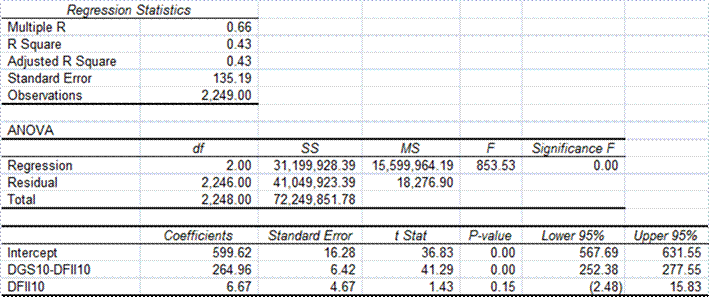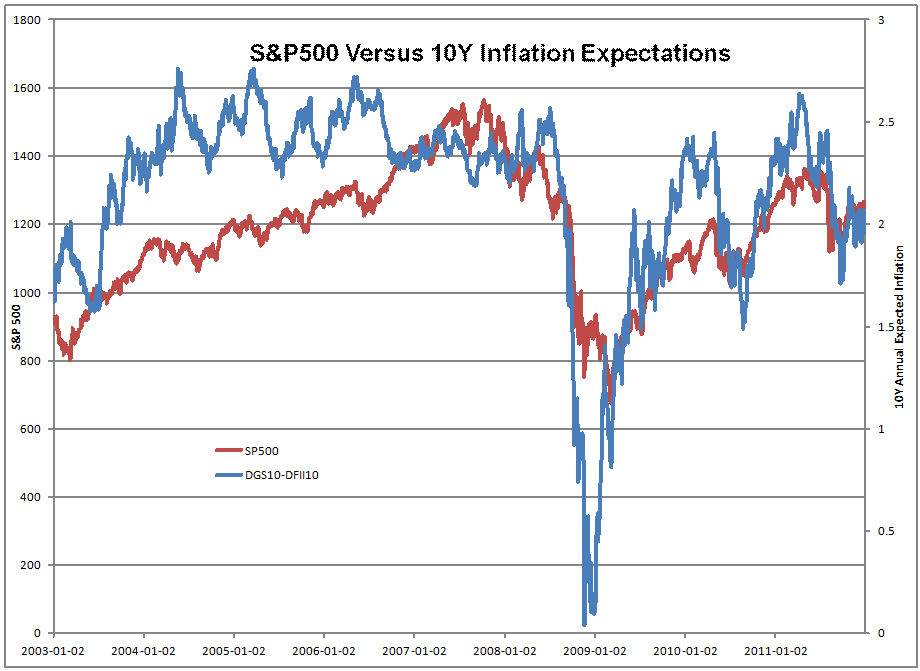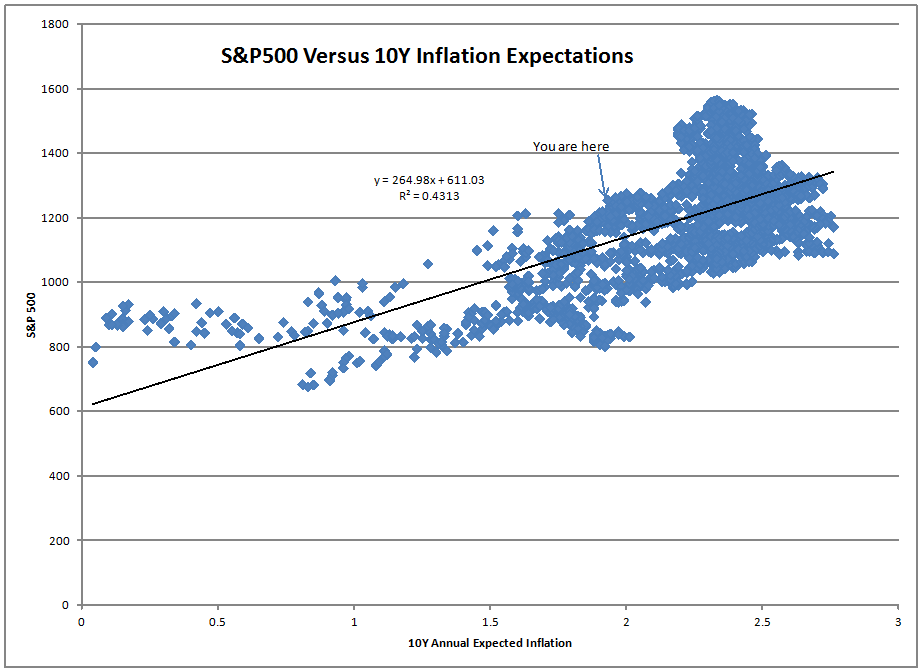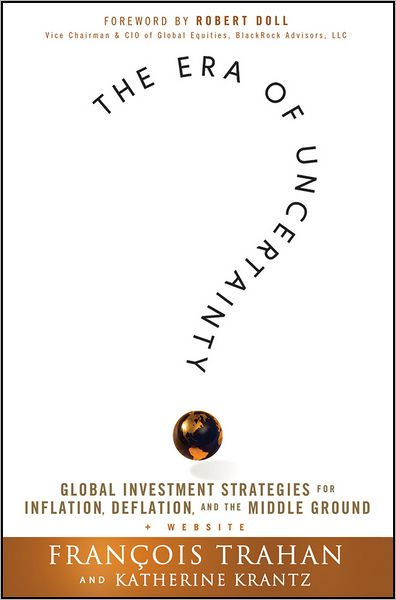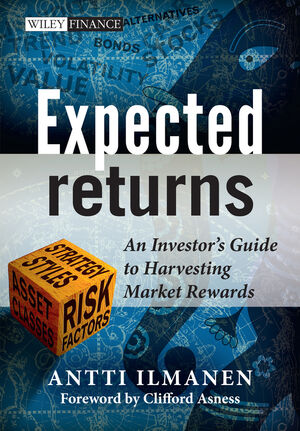Sorted Recent Tweets
Trying a new format here, I think readers will like it better.? Most things are better after additional effort.? Think of this as a news links by subject post.
Economics
- If you look in the back, it seems that there were 58 respondents. From page 13: Methodology & Panel Selection Invi? http://t.co/p8sVZl9g Feb 06, 2012
- Will the great interest rate gamble pay off? http://t.co/hgj5XSKc People want to believe that you can get something for nothing; ain’t true. Feb 05, 2012
- Central Planning at the Federal Reserve http://t.co/X8qmqU6C Fed: we can create prosperity by holding interest rates down, right? $$ #wishes Feb 05, 2012
- Labor Force Participation Rate: 28-year Low http://t.co/kLgQ61iK Everyone still happy about the lower unemployment rate? $$ Feb 05, 2012
- Bill Gross: Free Money Ain?t Really Free http://t.co/LXWxpxp5 It will lead to stagflation, IMO, depending on what fiscal policy does $$ Feb 05, 2012
- Life & Death Proposition http://t.co/XuZS5Snn Where does credit go when it dies? Back where it came. It delevers, slows & inhibits ec growth Feb 02, 2012
- US unemployment ?progress? http://t.co/WoIVZPGp If you add back the discoraged workers, all of the improvement in U-3 goes away $$ Feb 02, 2012
- The Perniciousness of ZIRP http://t.co/dYlFMbLe Gonzalo Lira on how ZIRP loses effectiveness b/c people think it’ll b there a long time $$ Feb 01, 2012
- Why Neoclassical Economics Doesn’t Work In The Age Of Deleveraging http://t.co/D3IAhTyv Steve Keen explains y Krugman & others r wrong $$ Feb 01, 2012
- Warning: Goat Rodeo http://t.co/JQ2FV9LS Hussman makes his case that equities are overvalued and could pull back 25% $$ Feb 01, 2012
- Who Owns World’s Financial Assets? & Why R US Households So Fascinated W/Stocks? http://t.co/5rp52OM4 American Exceptionalism in investing Feb 01, 2012
- As an aside, that is one reason why the US net foreign debt hasn’t spiraled up. We own equities abroad & they own our debt. $$ declines + Feb 01, 2012
- $$ declines reduce the value of our debts, but not the value of r foreign holdings. I think the US will come out of this crisis rel well $$ Feb 01, 2012
Housing
- Home Prices Tumble http://t.co/N1gdNslr No surprise here with all of the dark supply; houses come onto mkt when ppl can bear loss $$ Feb 01, 2012
- Too lazy to be knowns http://t.co/flXRR6fM I know many who understood what would happen if home RE prices fell, but none who got the size $$ Feb 01, 2012
- Freddie Mac’s “inverse floater” allowed more loan origination http://t.co/5devKZ17 Other side to the Propublica story http://t.co/KjXJHU1x Feb 01, 2012
- I’m no fan of the GSEs; I think they should be abolished, but the GSEs have always made a variety of bets on prepayment over time. $$ Feb 01, 2012
International
- On China, Henry Kissinger and Fareed Zakaria see Domestic Tension and Risk of Geopolitical Conflict http://t.co/1bhvrI3U Ferguson is wrong. Feb 05, 2012
- Tightening lending standards vary materially across the Eurozone http://t.co/ciWUK9cm Conditions tight in Italy & France, but not Germany $$ Feb 02, 2012
- Japan Auto Sales Notch Record Jump http://t.co/0VzF4WST Another small bright spot. Of course, bouncing back from a low level $$ Feb 02, 2012
- Socialist Hollande, Who Wants Full European Treaty Renegotiation, Increases Lead Over Sarkozy http://t.co/J3qCpZZ3 Eurozone Wild Card $$ Feb 01, 2012
- Hong Kong Homes Face 25% Drop as Loans Fall in Year of Dragon http://t.co/ifg1146H And this is with wealthy mainlanders fleeing China. $$ Feb 01, 2012
Markets
- RBC Takes On High Frequency Predators http://t.co/MfA5qdxm Where there is offense, there will b defense; nothing goes unanswered in the mkts Feb 05, 2012
- Global Strategists Abandoning Bearish Views http://t.co/dOXCUMA7 Makes me think we r getting close to a turning point. Feb 02, 2012
- Dividend stocks: Buyer beware http://t.co/SvMCHtCj Makes the valid & missed point: high qual div paying stocks r stocks & can lose $$ #yeah Feb 01, 2012
Credit
- 6 High-Yield Canaries-in-the-Coalmine http://t.co/4pz6SSQc 6 reasons y high yield is overheated http://t.co/fKnHmBqD & http://t.co/UPVev0iD Feb 02, 2012
- QOTD: Regulators Watching Aggressive Yield Chasing http://t.co/iWimo3eg FINRA warns of undue risk in income seeking. Advisors take note $$ Feb 02, 2012
- Contra: The Safest 7% Yield in America http://t.co/VrXoLEFH Poor analysis does not take into account the highish leverage on mtge repo $$ Feb 02, 2012
- Shipping Loans Go Bad for European Banks http://t.co/y5Z0wt3R Highly glutted area w/many dead firms walking; how far down will the losses go Feb 02, 2012
Politics
- Group lists top stock investments by members of Congress http://t.co/CarxUCjS Top 50 hldgs -> in top 100 cos by mkt cap. Hard2manipulate $$ Feb 05, 2012
- Obama Re-Election Odds Versus the Stock Market http://t.co/F5EETcve Example of 2 variables that r correlated b/c they anticipate GDP changes Feb 05, 2012
- RE: @abnormalreturns Gold is mostly political philosophy. How much control do you want the government to have over mo? http://t.co/hRxIkaoo Feb 03, 2012
- Getting back to the gold standard http://t.co/pCk8Ij6j Gingrich & Ron Paul have said they would like to appoint James Grant as Fed Chairman Feb 02, 2012
Companies
- Carlyle’s proposed IPO disaster http://t.co/OqGke8eN So there’s no board. Most boards don’t do much. Mgmt will have no board 2 shield them Feb 05, 2012
- For These Fans, a Day With Buffett Offers Wealth of Photo Opportunities http://t.co/UpcwVKe7 I think Buffett is enjoying life more now. Feb 05, 2012
- Buffett Railroad Boosts Capital Plan to $3.9B http://t.co/9XEw2gyT Buffett changes; organic investment in capital-intensive biz $$ #olddog Feb 01, 2012
- Pep Boys Seen Gaining 27% as Cheapest Value Lures Bids http://t.co/GyfH7qRL Could a bidding war start? Company is undermanaged $$ Feb 01, 2012
- Jefferies Allows Bonus Recipients to Swap Stock 4 Cash With 25% Discount http://t.co/pfGB3Vmc Fair way2 let employees disconnect from $JEF Feb 01, 2012
Financial Services
- I’ve just started “Acts of God and Man,” by Michael Powers. In the intro, he goes through the various meanings of th? http://t.co/tX7uAlWl Feb 05, 2012
- When evaluating Investment Funds, use Dollar-weighted Returns http://t.co/N5g7PI0d This is a neglcted concept that is enjoying a rebirth $$ Feb 02, 2012
- After a Delay, MF Global?s Missing Money Is Traced http://t.co/4s6U8yOe Investigation moves to how to recover the $$ and who is at fault. Feb 01, 2012
- http://t.co/wBbJTe3D FINRA Alert: Do you use complex products? What additional work do you do 2 assure that they are being used properly? $$ Feb 01, 2012
- Banks Need Higher Interest Rates to Start Making Money http://t.co/SneRACCi Flat front end of yield curve squishes bank interest margins $$ Feb 01, 2012
- 401(k) Plans Step Into the Sunshine http://t.co/fvKeup2L But as with DB plans, as costs rise, companies will offer them less. $$ Jan 31, 2012
Value Investing
- The SEC’s “90% Convergence” Fantasy http://t.co/bkWaAS5S US GAAP has many flaws, but we know them. IFRS will introduce abusable flexibility Feb 02, 2012
- But on the bright side, value investors may do relatively better as financials become less trustworthy; the accruals anomaly will sing $$ Feb 02, 2012
- Need to consider (Cost of goods sold)/user $$ RT @ErikSchatzker: Facebook gets $4.39/yr of revenue per user. ESPN gets $4.69/mo. Feb 02, 2012
- Berkowitz: Fund Plunge ?Makes Little Sense? http://t.co/pcoPLahW BB, appoint someone in your group 2 seek out opinions contrary 2 yours $$ Feb 01, 2012
- @ADayforRabbit I have argued in the past that BB is not paying attention to the delevering, which is a real headwind for the banks. $$ Feb 02, 2012
- New Fund Hopes to Prove Outspoken Analyst?s Thesis http://t.co/cuVpRzvO I bet @rcwhalen does well like my friends @ Hovde or M3 Partners $$ Feb 01, 2012
Hedge Funds
- Are Hedge Funds Worthwhile Investments? http://t.co/Lw2EhRPr Yet another “Hedge Fund Mirage” citation; the book is having a lot of influence Feb 02, 2012
- Are the hedge fund and private equity boys pulling a fast one? http://t.co/TNXFJo62 Beginning 2c the args of “Hedge Fund Mirage” everywhere Feb 02, 2012
- Did Hedge Funds Trigger the Financial Crisis? http://t.co/lNIb2dgF Secured asset classes can be overlevered; when they collapse, big mess $$ Feb 01, 2012
Miscellaneous
- Do the Job You’re Meant to Do http://t.co/wR3OX20N LIfe is too short to work with people you don’t respect, or tasks unfit for you $$ Feb 02, 2012
- Millionaire adopts girlfriend as daughter http://t.co/zffGCWbu Asset shelter. Does incest rely on consanguinity or on legal relationship? Feb 02, 2012
- Charles Murray Reiterates Willpower http://t.co/smeXZKNh Lack of self-control can destroy relationships, jobs, firms & lives $$ Feb 02, 2012
- I ran into @twitalyzer today. Lots of interesting analytics for tweeting. Here are some for me: http://t.co/HDdcFYaU & http://t.co/8uFFOMuP Feb 01, 2012
- At the first blogger summit at the UST, I recommended to the powers that be that they issue floaters. I also recommen? http://t.co/R3U8OHSi Feb 01, 2012
- California Faces Cash Shortfall by March on Low Receipts, Controller Says http://t.co/QxH1a6Re Could be interesting given the elections $$ Feb 01, 2012


